blog dedicated to all things "The Eight Mountains" novel written by Paolo Cognetti film directed by Felix van Groeningen & Charlotte Vandermeersch starring : Alessandro Borghi & Luca Marinelli film anticipated to come out in 2022
Don't wanna be here? Send us removal request.
Photo

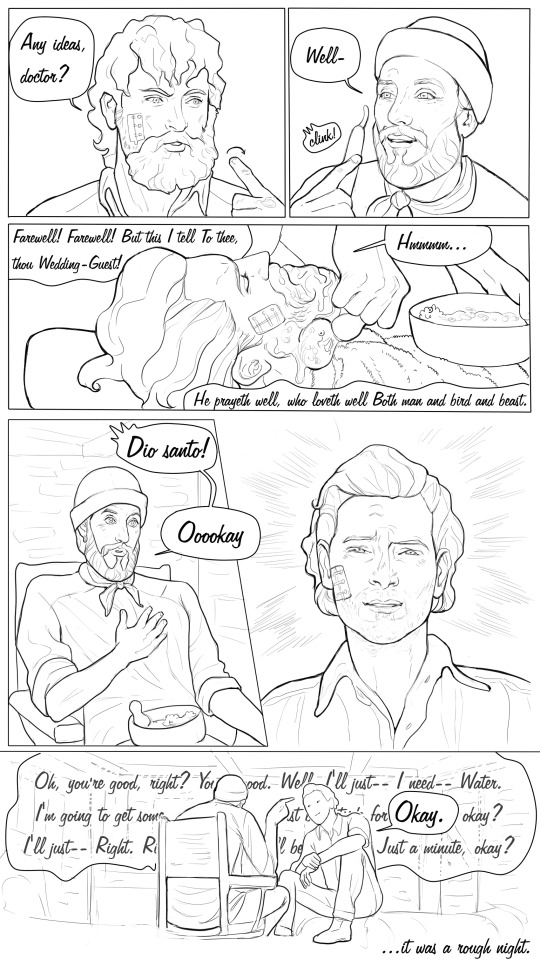
Pietro and Bruno (”Le otto montagne”,2022) having an ordinary Rough Night.
Art by @aivelin text by @sal-si-puedes
61 notes
·
View notes
Text
The eroticism of friendship and the strength of the mountain
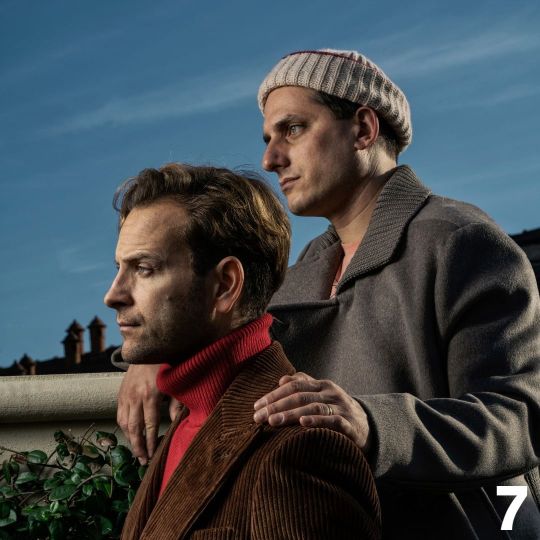
The two actors and the writer Paolo Cognetti tell what they learned from the mountaineers during the making of the film "Le otto montagne". A great test of acting, authenticity and humility: «Up there the ego is resized»
The film 'Le otto montagne' is an excursion of rare visual and emotional intensity. A must for those who loved Paolo Cognetti's novel from which it's based, for those who love mountain life in general, and for those who know nothing about it, but know what a true friendship is, its adventurous mystery. The story, brought to the big screen by Felix van Groeningen and Charlotte Vandermeersch, is a double love story: for the mountains and for friendship. To guide us, the actors Luca Marinelli and Alessandro Borghi, in the role of Pietro, the citizen, and Bruno, the mountaineer. Cognetti was their guide in the summer of 2021, when he hosted them in the refuge in the Aosta Valley where he wrote and set a large part of the novel (a refuge that he bought with the profits from the book). The friendship of the two resonated with the mountain and its singer.
«I had two fears about the film», confesses Cognetti connected via Zoom with Marinelli and Borghi «related to inauthenticity: that the story was taken elsewhere. There was talk of America, of the Rocky Mountains, where, however, there is no mountain pasture culture, which is central to the story. And then the two friends, the heart of the film, had to be real. It was important that the mountain was real and that the two friends were real». The setting has not been distorted, also because the Belgian directors were conquered by the beauty and seasonal cyclicality of the Aosta Valley, functional to show a friendship that resists distance in time, as well as in space. True the mountain, true friendship. Marinelli and Borghi were chosen not only for the sum of their talent, but for their experience. They met on the set of 'Non Essere Cattivo' by Claudio Caligari, filmed in 2015, then they never worked together again, although they remained friends. «Their meeting again, on the set, after a common past and a distance is what happens to Bruno and Pietro».
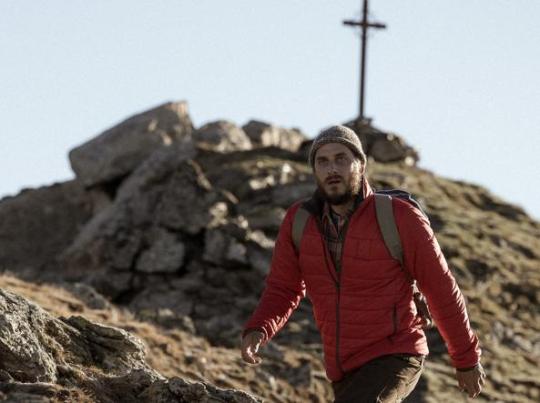
The two actors auditioned for both roles, but for Cognetti and the directors there were no doubts as to who should play the brighter role, full of energy and vitality and projects (i.e. Bruno, the mountaineer, played by Borghi), and who, on the other hand, is the shyer one, to be pulled out (ie Pietro, the citizen, or Marinelli). If for Marinelli love is the common root «of the billions of friendships in the world», for Borghi the fulcrum is diversity: «The most beautiful moments in the film for me are those in which the two friends recognize their differences and accept them, it's something that I also find a lot in my life, diversity nourishes the love for the woman with whom I have the good fortune to live with and all my friends, even Luca». Thus, with their different physical and emotional masses, and a familiarity due to real friendship, Marinelli and Borghi guaranteed that corporeity which in the novel is a vast front, a contact surface between the world of the city and the mountains.
«In the city» recalls Cognetti, who lives between Milan and the Alps «we are used to shaking hands, embracing, kissing. In the mountains it's a problem. My friends up there are often embarrassed to even shake your hand. Once a very dear friend told me: "You touch a little too much". He hurt me. In the novel, corporeality is important because the two friends find it hard to talk, in the mountains there is little talk and where words fail, bodies arrive, there is almost an eroticism in the friendship of Pietro and Bruno, who played together as children, they rolled around in the grass, they wrestled, they bathed. For me it was important that the two actors already had this eroticism, and they have it».
Eroticism in friendship. One can slip into the simplification of fluidity, but Borghi, connected from his Roman house, wearing a red dressing gown (Cognetti is in front of the bookcases of the Milan house and Marinelli has two abstract paintings behind him), shares a childhood anecdote with chaste eloquence: «As a child, when I had to leave the campsite and we had to dismantle the tent, I ran away from the pitch and went to kiss everyone to greet them and my mother scolded me: "It's not normal love that you go to all the people, unknown, to greet them with a kiss". But for me it was essential to show that I was happy to have been there and I wanted to thank them for the days together. Yes, I am an extremely physical person, the erotic side of a friendship is always present, I often happen to confuse love and friendship, I can't always understand when one begins and the other ends".
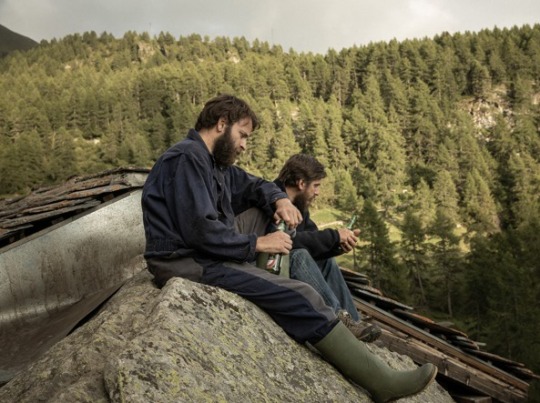
Marinelli reciprocates: «When we see each other, sometimes instead of asking "how are you", we understand each other from an embrace, we rest our heads on our shoulders and something passes, like in the last embrace between Pietro and Bruno, we sink into each other. It happens often between me and Alessandro too. I think I also passed this on to my character, surely the friendship between us was an important starting point». However, there was a catch: that the friendship between the two actors turned from a resource into a burden: this was not the case. Pietro and Bruno are not Luca and Alessandro. «For me, yes», protests Cognetti candidly, confessing himself unable to distinguish between reality and fiction, autobiography and fantasy, friends of yesterday and today, people who inspired the characters and actors they play. "I'm not joking, I've seen the film about twenty times, first it was more than three hours long, then every time a scene was cut and for me it was as if they cut off a piece of my body". Sadism? No, nostalgia. Of course, it is a bit sadistic: «I watch the film because I miss everything, I miss them, it's like having in your phone not only photos and videos of a beautiful thing, but an entire film».
Rewinding the tape of memories, off-screen episodes appear. Like the first meeting between Cognetti and Marinelli, recounted by the writer: «Luca arrived months before the start of filming, it was April, there was no one there that day, I was agitated, I did the cleaning, there was snow and we went for a walk. I remember that Laki, my dog, who is not as kind as me, stamped the ear of Mino, the little dog that Luca had brought with him. A nice menacing bite, to make clear how things are in the mountains. Then we went back, I have a guitar, he can play and sing very well and so the music, especially by Bon Iver, filled the typical silences of the shy. Luca also helped me set up the lights in the refuge, but the greatest satisfaction, after those months, was seeing how he changed his way of walking, when he dances on stony ground or when he climbs the mountains of Nepal, you can tell he knows how to do that".
For Marinelli, the mountains have a simple but strict rule: «To be on the high seas you must be sailors, to be in the mountains you must be mountaineers. When I went with Paolo we made wonderful laps, if I went alone with my dog I covered 500 meters and then came back. But walking with Paolo means putting yourself on the line, it's not a walk, it's an adventure» (Borghi intervenes with affectionate irony «Paolo the ibex»). Marinelli continues: "When we shot the scenes in Nepal, walking for a long time to reach the locations, I thought about Michael Ende's book Momo, where there's a street sweeper (Beppo) who says he doesn't think about the road all at once, but see it piece by piece. Of those walks from a certain point on, I remember the heels of the guide in front of me and I followed him as if I were a little donkey. Don't look at the top, but at the little piece in front of you, and this trust in the other are two very beautiful things».
For Borghi, who had been going to the mountains for a few years but always in the summer and never in the Aosta Valley, the pasture was a mystical discovery. Thanks to a week spent at an altitude of 2,300 meters with a young shepherd, Esteban, to learn how to milk and make cheese. “He has huge, gorilla-like hands and a heart of gold. Age, unknown. He said he was 18, but he was a man disguised as a boy, because mountain people are of an age you can't understand. We woke up at 4 in the morning, first milking, then we went to the pasture and there we had to learn to recognize the simplest cows and the most complicated ones... my favorite, which I also milk in the film, is Dorina, I fell in love with her. She had a severed tail from a dog's bite, they couldn't tie her tail up and so I found her excrement smeared on my face, and I didn't say anything so as not to look unable. After seeing Esteban's face, I knew I could complain without ruining my reputation. The reputation. But the beauty of the mountain, its essence, frees you from superstructures, from fear of being judged by others».
The ego, thus, develops a healthier need for the other. «You are in a place that makes you feel small» concludes Borghi «the mountain puts you back in your place. Every time Luca and I were looking out over the refuge, at sunset or sunrise, with or without snow, we felt nothing compared to what we were looking at. So it's natural for you to take refuge in the affection of the other. You look ahead, you see infinity, you feel small, then you look to the left, there is Luca, to the right there is Paolo, and you are safe again. This is the secret of the mountain and the need to be together». Before saying goodbye, Cognetti recalls the day in which he introduced the two actors to his two mountain friends: «Remigio and Gabriele, whom I met when I was 30, were the embodiment of the imagination that I had as a child when I went alone during summer in the mountains. I was inspired by them for Bruno, whose name I took from a neighbor at school». On the first day together, with Luca and Alessandro, they performed a psychomagic ritual: «Remigio took us to slide on the snow, then, all wet, we went to Gabriele's hut to drink hot wine or coffee. I saw in the eyes of Luca and Alessandro how wonderful everything was, we were already inside the film before it started and that world was real. I looked at all this like a child to whom life has given a gift, I saw everyone together, Gabri and Remigio, Luca and Alessandro, I smiled and took pictures, it was happiness».
Cr: 7Corriere
Like usual, sorry for my English
277 notes
·
View notes
Text
THE 8 MOUNTAINS OF BORGHI AND MARINELLI
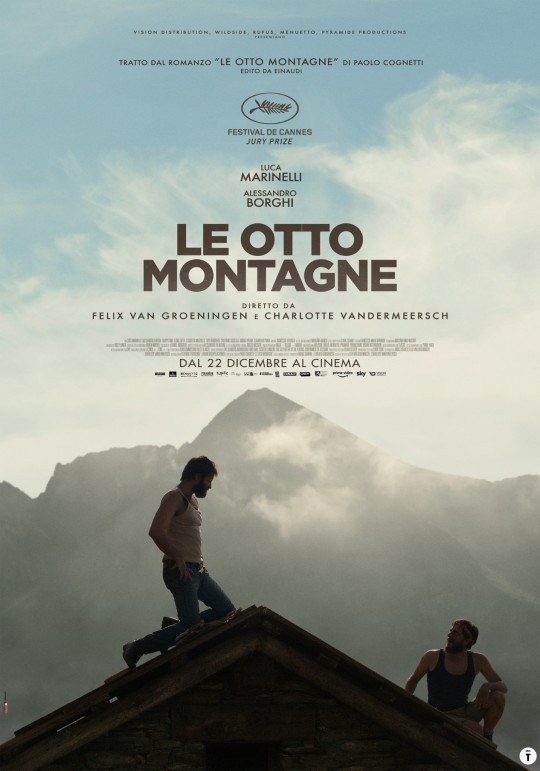
THE TWO ACTORS, FRIENDS IN FICTION AND IN LIFE, TELL US THE INCREDIBLE HUMAN JOURNEY, LIVED AT THE SIDE OF THE WRITER PAOLO COGNETTI AND THE DIRECTORS OF ALABAMA MONROE, ACCOMPLISHED TO FILM THE THRILLING MOVIE BASED ON THE NOVEL, WINNER OF THE “PREMIO STREGA”. WHICH ARRIVES IN THEATERS AT CHRISTMAS, AFTER THE AWARD WON AT CANNES
Two friends and many paths to travel together. Indeed, three. Alessandro Borghi, Luca Marinelli and Paolo Cognetti, author of the novel “The eight mountains”, winner of the Strega Prize in 2017. A love song for high altitudes, forests, streams and the great outdoors, tells the story of the friendship between Pietro and Bruno, who met in the mountains as boys and again as adults, identical and very different, to build a small hut together, building it on the ruins of a hut that Pietro's father left him in inheritance. That project will renew their relationship while giving direction to the future. Cognetti's novel has now become a film directed by Felix van Groeningen and Charlotte Vandermeersch, the directors of the moving Alabama Monroe. After winning the Prize of Jury at the last Cannes Film Festival, now it arrives in theaters on December 22nd thanks to Vision Distribution, just in time for the Christmas holidays. In the movie. Pietro and Bruno are precisely them, Borghi and Marinelli, great friends even in life, who met on the set seven years after the film that brought them together, “Non essere cattivo”. And here they spent a lot of time with Cognetti himself, during the long months of preparation for the shooting that they themselves tell us about.
What relationship did you have with mountains before this movie?
Alessandro Borghi: I had started an approach to the mountains three years ago: I was bored, in the summer, ending up in the crowd, by the sea, so I tried to change. And I fell in love, I found a right way for me to enjoy the mountain, almost meditative. But also the fact that in the mountains you can do a lot of sports, it amuses me. Let's say that, through the film, I closed a cycle to start another. I exhausted my "tourist love" and started a different path, favored by the people we worked with. I learned how to milk cows, to graze, to make cheese, to experience the mountain pastures... Now I see it from another point of view, even more "earthly". And so now I can consider my love "complete and official".
Luca Marinelli: I can also say that I'm officially in love with the mountain. But in a more similar way to Pietro, who already had an imprint, because part of my family comes from a small mountain village. But it’s a small village that is 900 meters above sea level. That kind of mountain I loved and knew, but it's very different from what we did for the film. We lived it completely, we went from 1500 meters to 3500... And we shot up to 4000 meters, for the scenes with the glacier. We walked a lot with Paolo (Cognetti, ed.), he was our first "mountain instructor", then we found others, mostly his friends.
What contribution did he make to the film?
AB: Paolo was with us all the time, always on tiptoe and with great sensitivity. He was very good at not making us feel responsible for having to 'give back’ something that he had put in the book. He could have said “look, when I wrote this I was thinking about this”, and he never did. We rather asked in some moments. From a practical point of view, instead, he tried to kill me... (laughs, ed.). He took me on crazy walks. Every time he told me "It’s an hour's walk, nothing much…” then it became six hours and you reached 3500 meters. But through his way of experiencing the mountains I discovered a different approach: he is a great teacher of "lonely mountain". Someone who says: “Now you're happy that I'm here with you, but think if you do it alone��. And then he's a special human being, someone who is very careful about the words he uses and who uses them uncommonly.
LM: Yes, we spent months with him. I asked Felix and Charlotte if it would be possible to meet and have some time to prepare before shooting, it's a phase of the work that I really enjoy. For “Non essere cattivo” think that I had moved to Ostia. At first I was afraid to annoy him, then he became our teacher and eventually we became friends.
How complicated was to shoot following the rhythms of the mountain?
AB: The mountain commands, so from a production point of view it was a huge operation. And it was the longest film I've made to shoot, five months. We started in May and finished in December, with breaks in between, and in the meantime Luca also went to Nepal, with a reduced crew and in the midst of the pandemic. The hardest part was the winter one. Unfortunately, with the climatic situation we live in, things never "returned": when we needed the snow, it wasn't there, when we didn't need it, there was... The summer part, on the other hand, was more regular. It makes me laugh that we went to the set by all imaginable transports, with the snowmobile, with the van, with the motorcycle, with the helicopter, on foot... Depending on how the situation was when we woke up, we had to change. One evening we almost got stuck on the set because a heavy snow came and we couldn't go back.
And how did it go in Nepal?
LM: Nepal was crazy. A great gift. We reached the places that can be seen on foot. We stayed in Katmandu for a week and then for two weeks we walked in the mountains: from Katmandu we reached 4300 meters, in a village where we found fields cultivated with yak-pulled plows, something I really didn’t expect at that height. At 4000 meters we have glaciers. There were days in which we just walked, even ten hours, to get to the next stage, where we then had to acclimatise, because in any case the body has to get used to it. I remember times when I felt the altitude a lot, it's powerful. We have to go back there together (he tells Alessandro Borghi, ed), it's the next thing we do together.
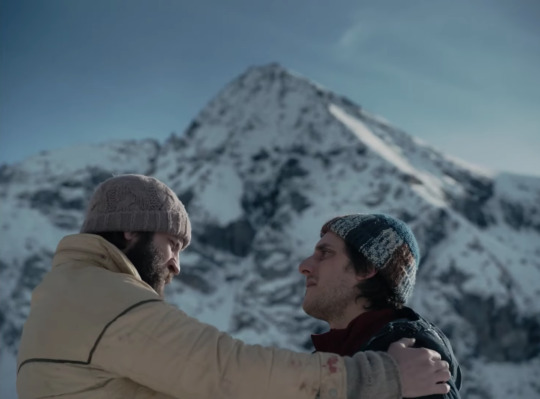
What kind of directors are Felix van Groeningen and Charlotte Vandermeersch?
AB: When I saw Alabama Monroe, it seemed unbelievable that I was going to make a film with them. I find it extraordinary. I was curious to see if their approach would be similar, just in terms of language. But the incredible thing is that if you see their films they all seem to be made by a different director. Metrics, narration, use of the machine…The choice of format, 4:3, is incredible. Their idea was not to show as much as a larger format would allow, so the audience would have to imagine the rest of the frame. I find them two immensely talented directors and two very special human beings, at this point I could not imagine this film made by someone else.
LM: They fell deeply in love with this story. They had great courage to say "We want to tell this story and we want to tell it where it was written”, and then come here, learn Italian very well in a few months... I spoke Italian with them on the set because I knew they understood it very well.
Can you give me a special memory of this very particular experience?
AB: Obviously I have many incredible memories, but not to tell you one too obvious, here, I thought of these lunches, which were the classic lunches with baskets that are made on the set, on white plastic tables. At one point, the first few days, I took a picture of what Luca and I saw: baskets, plastic tables and... the infinite in front of us. The feeling of being very small. And the one that there would still be so much to do, so much time to live that situation. It gave me great joy. Usually when you get to the end of the shoot you feel that a path has run out, it didn't happen to me here: I would have shot for another nine months.
LM: A memory, linked to our friendship, was when I first saw Alessandro sitting at the makeup, and I was there too. I thought 'Wow…what is this? A hallucination?”. Working together again was very nice. In addition to all this, I remember a moment in Nepal when Pietro looks around him. They had asked me to show the happiness of the character. So I thought about all the way to get to that scene in Nepal and I got really excited. That image, those mountains, the bird that flew over us, I will never forget it. “Look how far we've come, all together”, I thought.
Cr: Best Movie
Like always, sorry for my English
125 notes
·
View notes
Photo


72nd Venice Film Festival - Red Carpet
381 notes
·
View notes
Photo




#currently re-reading the book#and can't wait for the movie#le otto montagne#the eight mountains#alessandro borghi#luca marinelli#paolo cognetti#<3
251 notes
·
View notes
Text



Luca Marinelli & Alessandro Borghi at the ZFF2022
127 notes
·
View notes
Text
Luca Marinelli, Alessandro Borghi – Le Otto Montagne #Cannes2022
Transcript of the podcast, translated into English (Sorry for my English)
Here you can listen to the podcast in Italian

Interviewer: Do you think this story is that of an elective affinity stronger than brotherly or passionate love?
Ale: Well that’s an important question… Luca: After you! And it’s all yours, above all the beginning.
Ale: I feel like answering you this way, are you ready? trying to stay on the level of question. I generally believe that some human beings must found each other in the world. If I think of some of the greatest friends I have had and have now in my life, they are people who maybe had little to do with me, who had different ideas, who belonged to another reality but with whom I felt a strong connection like human being, like … I also believe that the definition of friendship is a very complex thing, I still can’t give it to myself well today, but it’s precisely the need to know that someone is there, that is the thing of knowing that out of here I will have someone to call to tell them what my feelings were, right? Because there is one here, my brother, but he knows it because he’s here with me, and therefore there are people who are elsewhere, who are in Rome, and therefore that security, that awareness of having people who feel towards me a sincere affection that is independent of everything that subsequently happened in my life is at this moment for me the form of friendship, for what concerns Pietro and Bruno, I believe that they belong to two extremely distant things, that have a history extremely different, but that they are then united by the mountain, certainly, but also by their need to have something to do with each other. Because they find each other… that is, it is as if they recognize two human beings who can speak the same language, right? And so in the film there is all this, it’s all about putting yourself to the test, it’s all about trying to be sure to express yourself, to express your affection in the right way, without ever succeeding. It’s the beauty of sometimes not having to say anything and understand each other regardless of everything. That is, it’s really a big world and this elective affinity you are talking about is something that exists in life and that is also quite important.
Luca: The next question (laughs)
Interviewer: From this statement …
Luca: Well, no, if I can only add one thing to all this, I totally agree with. Just about the opening sentence that I liked a lot, but I think all people must find each other in this world, this is… it’s very important. Then here, I wouldn’t add anything else.
Interviewer: The directors in the director’s notes spoke of nature, this phantom nature that is so much discussed in the film, with romanticism, melancholy and danger. As you have lived it; and I would add, I felt in the film a sort of frankness that comes from nature, favored by nature, when they talk, they talk little, the dialogues are sparse but they tell each other some truths that are so beautiful for the viewer that breathe, here, how did you perceive and stage it?
Luca: Well, first of all I think that in all this great world it was a wonderful gift from our two directors, who took us and brought us into this, this very particular experience, where we met, we were lucky enough to meet Paolo Cognetti, this book, this wonderful story, and I think that everything you said is partly due to Bruno in the story, because he is the one who always has a gigantic truth to tell with just few words, right? Even when, I remember, there is a scene where they are in front of the bonfire, they are there in the mountain, and he tells him “when I like to do something, I do it” and it’s that engine that gives Pietro, that petrol it gives to the inner Pietro’s machine, the push to go on, or afterwards, I remember many phrases from Bruno, how is it? Poor…
Ale: “Poor thoughts, poor words”
Luca: “Poor thoughts, poor words”; always small truths, mini and gigantic at the same time.
Ale: Well, thinking, obviously the mountain is the protagonist of our film, it helped us. It’s as if every time you have the feeling of leaving a void in the story, that void is then filled by the fact that you look behind you and say okay, we don’t need to say anything, then in reality it’s more complex than that, and in reality what filled those gaps was the writing of the film, wonderful, and a direction that never made us feel that something was really missing. We have always looked for something new in the characters, indeed I, in particular, must say that compared to the two phrases that Luca said, they are phrases that come from people who created Bruno’s character, in particular two, who were those to whom I have clung emotionally to try to tell Bruno and two very different people, who are part of the mountain, they helped me a little to discover the indescribable strength that a word can have that inserted in an urban context can seem trivial, but instead said by someone who is alone on a mountain has a completely different meaning. So it was fundamental, and also for my life, that of Alessandro, to deal with the mountains was one thing… a huge gift. That is, now I know for sure that I cannot be without the mountain.
#thanks for translating!#le otto montagne#luca marinelli#alessandro borghi#the eight mountains#love their dynamic
24 notes
·
View notes
Text
Alessandro Borghi and Luca Marinelli, the story of a friendship
Theirs, and the one told in “Le Otto Montagne”, the film (from the novel Premio Strega by Paolo Cognetti) that puts them back together seven years after their consecration with ’Non Essere Cattivo’. We met them in Cannes

Alessandro Borghi is scared: «No, because now you see me like this, here at the Cannes Film Festival, with this green jacket playing cool, but in reality I’m afraid of everything. And with age it gets worse and worse". Two chairs away, Luca Marinelli looks around as well with a strange look, pleading: “Easy questions, please.” When they don’t arrive, he leans towards Borghi and asks: “Shall we change?”. “Of course not” is the sly reply. On the other hand - you will think - we are at Cannes, not at the sausage festival, and these two are even running for the Palme d'Or with the Italian-Belgian-French film “Le Otto Montagne”, directed by Felix Van Groeningen and Charlotte Vandermeersch, based on the novel Premio Strega by Paolo Cognetti, in theaters this autumn. True. But the feeling is that much of the emotion comes from being at Cannes together. Like two (missed) Ferragnez* of the cinema. Because, in short, let’s face it: Borghi and Marinelli are the most beautiful male couple around.
The first elegantly coatto*, complete with a tattoo that emerges from the neckline of the shoe and rises along the back of the foot; the second more of an intellectual cinema. Both are very talented and sought after. The two fell in love, sorry, they met in 2015 on the set of “Non Essere Cattivo” by Claudio Caligari: there they became great friends. They have always wanted to work together again: “We had a thousand projects,” they confirm in chorus. But in fact, it never went down to the point. Until today. Seven years - and eight mountains - later, here they are, in fact, the “Cip and Dale” Borghi & Marinelli, more close-knit than ever, as enthusiastic as two kids on the first day of school. “We have always kept in touch, friendship has never been lost,” confirms Marinelli while Borghi nods with conviction. «Claudio Caligari has given us this bond of incredible friendship, indeed this family. Felix and Charlotte gave us a new one, as a gift, after seven years». And you think: now Borghi gets up and kisses Marinelli on the mouth. Instead it doesn’t happen. But it’s like if that happened.
The two are very close. Zero envy, very good-natured fooling around and above all an understanding that pierces the screen. The rivalry? Not received. “I’m not competitive because I feel uncomfortable at any moment, even when events put cool things on me,” assures Borghi, who, like Marinelli, has done a lot of cool things. But nothing: the two “love each other”, and in a way that makes all women envious: with us, solidarity and non-profit friendship are not exactly that frequent, or at least not in the workplace. But we were saying. Together the two transform interviews into a funfair of jokes and truthful statements, and films into masterpieces. And if the film in question deals, like “Le Otto Montagne”, with the theme of male friendship, you understand that success is guaranteed. “The story passes through the filter of our friendship, and this is an advantage,” they agree in unison.
Keep reading
#them two <3#alessandro borghi#luca marinelli#ale & luca the dreamteam#this writer definitely ships them a normal amount 😂#thanks for the translation op
116 notes
·
View notes
Text
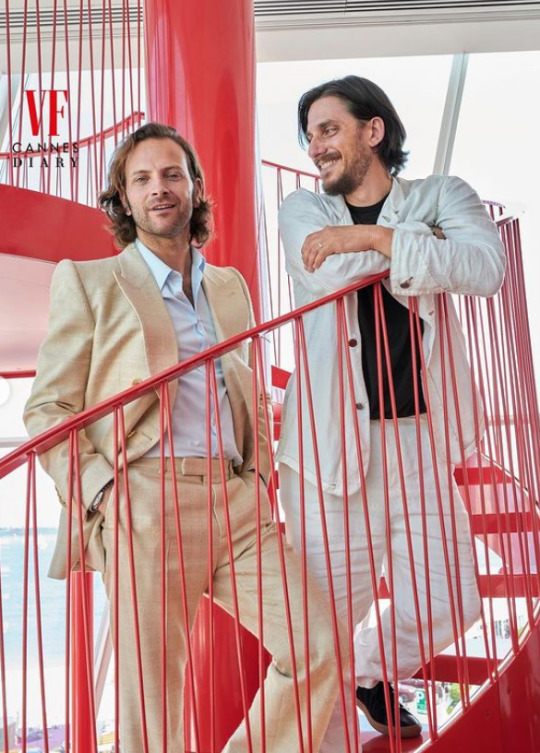
get someone who looks at you like Luca Marinelli looks at Alessandro Borghi 😊
(via Vanity Fair Italia)
18 notes
·
View notes
Photo






LUCA MARINELLI as PIETRO in LE OTTO MONTAGNE (2022)
#first ever screening happening in Cannes right this moment!!#le otto montagne#the eight mountains#alessandro borghi#luca marinelli#ale & luca the dreamteam#op these are so crisp I can't believe it
300 notes
·
View notes
Text
Interview with Luca & Ale at Cannes (Summary)

- Ale said that at the base of their characters they used the love and friendship that binds them in real life.
- Luca said that this film is a great story of friendship and love.
- The interviewer said that it's amazing how Luca and Ale have only worked on other film together, besides this one, because there is a strong bond between them that shines through the movie.
- Luca said that "Non Essere Cattivo" was a gift from a professional point of view but also a private one, because their friendship has lasted for 6 years.
- Luca couldn't believe that they would work together again. "Wow" 😊
- Luca said that he felt bound to the story (not specifically to one of the characters), and that both the book and the script moved him.
- Ale was more interested in playing Bruno because he would have new experiences, like learning how to milk a cow.
- Luca said that shooting in the mountains is like being in another world. And that he felt awkward there.
Video
Like always, sorry for my English xD
113 notes
·
View notes
Text

#the dreamteam!!#alessandro borghi#luca marinelli#paolo cognetti#the eight mountains#le otto montagne
83 notes
·
View notes
Photo
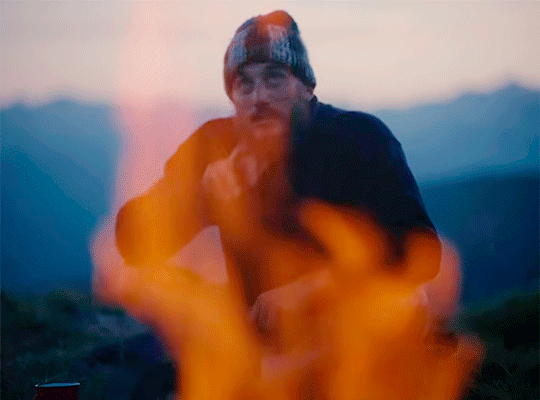


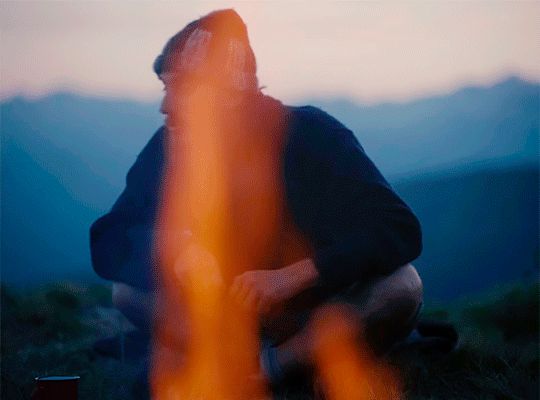

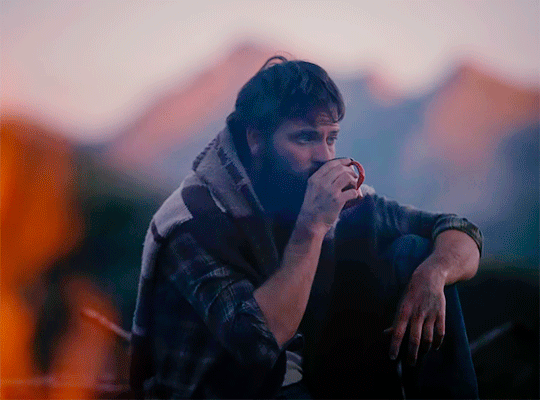


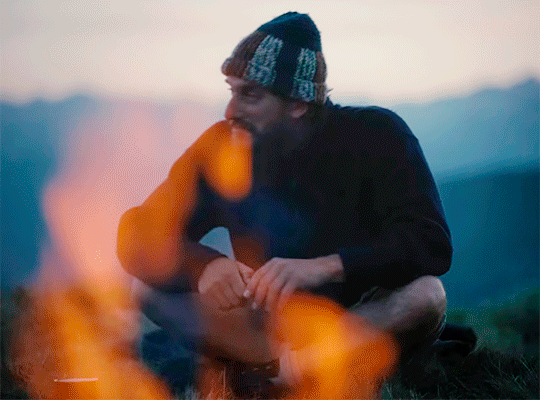
350 notes
·
View notes
Photo


#look at those perfect guys#pietro x bruno#ale & luca - the dreamteam#le otto montagne#the eight mountains#alessandro borghi#luca marinelli
398 notes
·
View notes
Text
‘Le Otto Montagne’ by Paolo Cognetti || Dir. Felix can Groeningen, Charlotte Vandermeersch - Festival de Cannes
Source: https://variety.com/2022/film/news/felix-van-groeningen-and-charlotte-vandermeersch-eight-mountains-1235264971/
#LOOK AT THEM!!!!#THEY'RE PERFECT!!#<3#💞🥺#CAN'T WAIT!!#and SO EXCITED FOR THE RED CAPRET PICS NEXT WEEK!!#le otto montagne#the eight mountains#alessandro borghi#luca marinelli
181 notes
·
View notes
Text

Le Otto Montagne at Cannes - May 18th
15 notes
·
View notes
Text
Paolo Cognetti (author of Le Otto Montagne) about Le Otto Montagne at Cannes & Luca:
"A beautiful gift and Luca Marinelli was the most beautiful discovery, the best Italian actor. He was fantastic, he got into the role and put himself on the line".

#once again I'm reminded of the critics raving about luca in martin eden#the eight mountains#paolo cognetti#le otto montagne#luca marinelli
92 notes
·
View notes